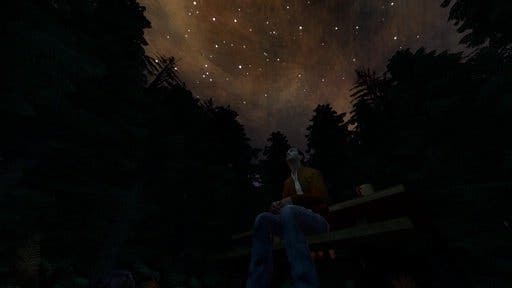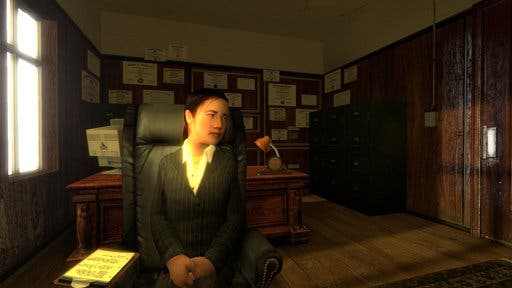Alt Mod Scene
Modding things differently.
Pinchbeck too has encountered some criticism for his mods, Dear Esther and Korsakavia. These strange, narrated, single-player explorations of detailed environments engendered a range of reactions, from blank indifference, to accusations of pretension, to gushing enthusiasm about their surreal subject matter.
However, Pinchbeck wasn't delivering a personal project, like Yang's, but an academic experiment intended to study how games are made - an experiment that that has surpassed its original remit.
"What it's done is transcend the original research question," says Pinchbeck. "What we're now looking at is a pretty clear indication that this type of experience, which draws on bits and pieces from more traditional games but is still fairly unique, has a real place in the wider gaming scene.
"Since Esther came out, there's been a string of other experimental and indie games which have chosen to explore similar ideas (I'm not claiming that's down to me at all - it's just a really telling thing that all over the world, people have had similar ideas about this one way you can explore a different aspect to the medium). So we certainly hit a nerve, and I think it's quite an important one."
Perhaps that's the point of what is going on in this particular corner of gaming: to hit nerves, to be weird, and to challenge gamers. Whether the mod authors do this through characters, as Yang has done, or through exploration of an environment, as Pinchbeck has done, doesn't matter: it's about putting experimentation at the fore, and doing things differently.

Yang is forthright about the attitude which as produced this: "The commercial video game industry is (rightly) concerned with what will sell instead of what will be interesting," he says, "so I highlight gay characters in my mod because commercial games won't; I put Emily Dickinson in my mod because commercial games won't; and so on."
For Yang, the mod community has largely been missing a trick: if there's no money, you don't have to mimick the "parent" material of mainstream games. Hell, you probably should be doing something that could never be commercial.
"One of the main reasons I stopped doing huge mod projects was because it takes years and years to release," says Yang. "I don't think mods should do that. It mimics commercial practice... but commercial games are funded, have marketing and QA... and mods don't. So why do we do it?"
The answer, of course, is because most of the time it's only gamers who make mods, and they want to make variants of the games they already enjoy. More crucially, perhaps, it's often only gamers who even realise these tools exist.

When non-gamers discover mods, realise how powerful the tools are, and bring their agenda to them then, well, peculiar things can happen. Pinchbeck is a good example of this, and the influence of his work is growing quite rapidly.
But even he has reservations. "Richard Bartle said recently, 'Games are mainstream. Drown or learn to swim,' and I totally support that. I'm more worried about all the people piling into the lifeboats: sometimes it feels like everyone is claiming to be an expert at paddling, even when half of them have never been in a boat before."
As gaming becomes inundated with non-gamers wanting a stake of the new terrain, so mods and similar tools offer an easy way to dust off the chaff, and figure out who or what to take seriously, as Pinchbeck suggests.
"If you want to understand games, play them. For me, it's that simple. And what I've found out on top of that - at least for the very specific type of questions I'm interested in - is that if you really, really want to understand games, build them."








